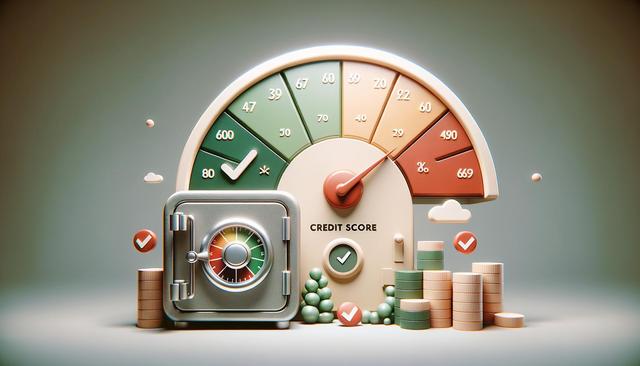
Understanding Credit Scores: What You Need to Know
What Is a Credit Score?
A credit score is a numerical representation of your creditworthiness, which lenders use to assess the risk of lending you money. It is based on your credit history and ranges typically from 300 to 850. The higher your score, the more likely you are to be seen as a responsible borrower. Credit scores are generated using data from your credit report, which includes your payment history, the amount of debt you owe, the length of your credit history, new credit inquiries, and the types of credit you use.
Lenders, landlords, insurance companies, and even some employers may review your credit score to make decisions. That makes it essential not just for obtaining loans or credit cards, but also for securing housing or employment in certain cases. Maintaining a healthy credit score can open doors to better interest rates and financial opportunities.
How Credit Scores Are Calculated
Understanding how your credit score is calculated can help you make informed financial decisions. Although different scoring models exist, most follow a general structure. The most commonly used models assign weights to five main categories:
- Payment history (35%): Timely payments on credit accounts.
- Amounts owed (30%): Your credit utilization ratio, or how much of your available credit is in use.
- Length of credit history (15%): How long your accounts have been open.
- Credit mix (10%): The variety of credit types you manage, such as credit cards, mortgages, and car loans.
- New credit (10%): Frequency of new credit inquiries and recently opened accounts.
These components are analyzed to assign a score that reflects your borrowing and repayment behavior. Regularly reviewing your credit report can help you understand how these factors influence your score and identify areas for improvement.
Why Your Credit Score Matters
A good credit score can be a valuable financial asset. It affects your ability to borrow money, the interest rates you’ll be offered, and even your insurance premiums. Lenders favor applicants with higher scores because they are perceived as lower risk. This can translate into significant savings over time, especially on large loans such as mortgages or auto financing.
Here are a few ways your credit score can impact your financial life:
- Loan approvals and terms: Higher scores can lead to better loan terms and lower interest rates.
- Credit card eligibility: You may qualify for cards with more benefits or rewards.
- Rental applications: Landlords may check your credit before renting a property.
- Employment opportunities: Some employers conduct credit checks, particularly for roles involving financial responsibility.
Because of these implications, it’s important to monitor your credit health regularly and address any issues that may arise.
How to Improve Your Credit Score
Improving your credit score is a gradual process, but taking consistent steps can lead to noticeable results over time. The first step is to obtain a copy of your credit report from all three major credit bureaus. This allows you to identify any inaccuracies or outdated information that could be affecting your score.
Here are some strategies to help enhance your credit score:
- Pay bills on time: Consistent, on-time payments are essential to maintaining and improving your score.
- Reduce credit card balances: Lowering your credit utilization ratio can have a positive impact.
- Avoid opening too many new accounts: Multiple credit inquiries in a short time can lower your score.
- Keep old accounts open: A longer credit history can benefit your score.
- Mix credit types strategically: Having a blend of revolving and installment credit can help.
Patience and discipline are key. While quick fixes are rare, consistent efforts can yield long-term benefits.
Common Credit Score Myths
There are several misconceptions surrounding credit scores that can lead to confusion or misguided financial decisions. By understanding and dispelling these myths, you can make better-informed choices.
- Myth 1: Checking your own credit hurts your score – Viewing your own credit report is considered a soft inquiry and does not impact your score.
- Myth 2: You need to carry a balance to build credit – You can build credit without carrying a balance by using your card and paying it off in full each month.
- Myth 3: Closing credit cards improves your score – Closing an account can reduce your available credit and increase your utilization ratio, potentially lowering your score.
- Myth 4: Income affects your credit score – While income is important for loan applications, it is not factored into your credit score.
Understanding what does and does not influence your score can help you focus on the actions that truly make a difference. It’s always wise to rely on credible sources and review your credit information regularly for accuracy.
Conclusion: Taking Control of Your Credit Health
Credit scores are a crucial aspect of your overall financial profile. By understanding what they are, how they’re calculated, and the role they play in everyday financial decisions, you can take steps to improve or maintain a healthy score. Whether you’re planning to apply for a loan, rent a home, or simply want to be in good financial standing, regularly monitoring your credit and making informed choices can empower you to achieve your financial goals. Being proactive, staying informed, and practicing responsible credit habits will serve you well throughout your financial journey.